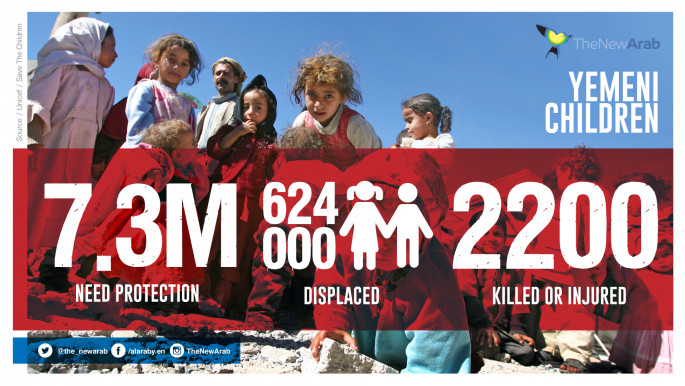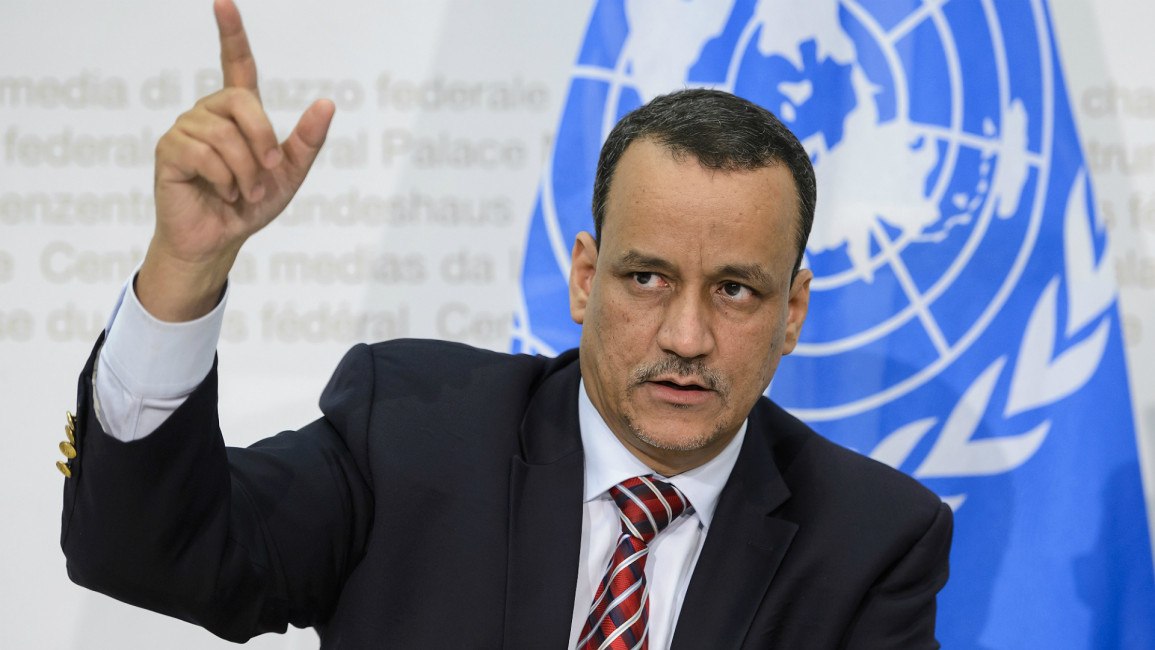Yemen peace talks resume in Kuwait
The UN envoy trying to negotiate an end to the war in Yemen said peace talks resumed in Kuwait on Wednesday.
Yemen's warring factions agreed to form a committee to look into the attack on the governorate of Amran, which halted the talks last week.
"The session on peace talks has started and it will follow the agreed agenda," Ismail Ould Cheikh Ahmed tweeted, "All are present, including the government delegation."
The government delegation, headed by Yemen's foreign minister Abdelmalek al-Mekhlafi, suspended their participation on Sunday after rebels seized the al-Amaliqa military base in northern Sanaa.
Yemen's foreign minister demanded a complete pull out.
All parties agreed that a monitoring committee will investigate the offensive and submit recommendations within 72 hours.
 |
| Yemeni children stand outside houses destroyed in an airstrike by the Saudi-led coalition on the capital Sanaa [AFP] |
Meanwhile, rights groups voiced deep concern over violations of the ceasefire by rebels and their allies as well as on the side of the government, supported by the Saudi-led military coalition.
Human Right Watch urged all parties to "support international investigations, transitional justice and victim compensation as key elements of any agreement."
"The armed conflict in Yemen has been characterised by numerous violations of the laws of war by all sides, which have not been investigated nor have resulted in any redress for victims of unlawful attacks," the watchdog said on Wednesday.
It accused the Saudi-led coalition of launching "indiscriminate airstrikes" on civilian areas.
"A mechanism should be put in place to investigate abuses, prosecute those responsible and assist the victims," urged Human Rights Watch's Middle East director Joe Stork said.
"It's crucial for the Yemen peace talks to address past atrocities as well as future political arrangements."
 |
|



